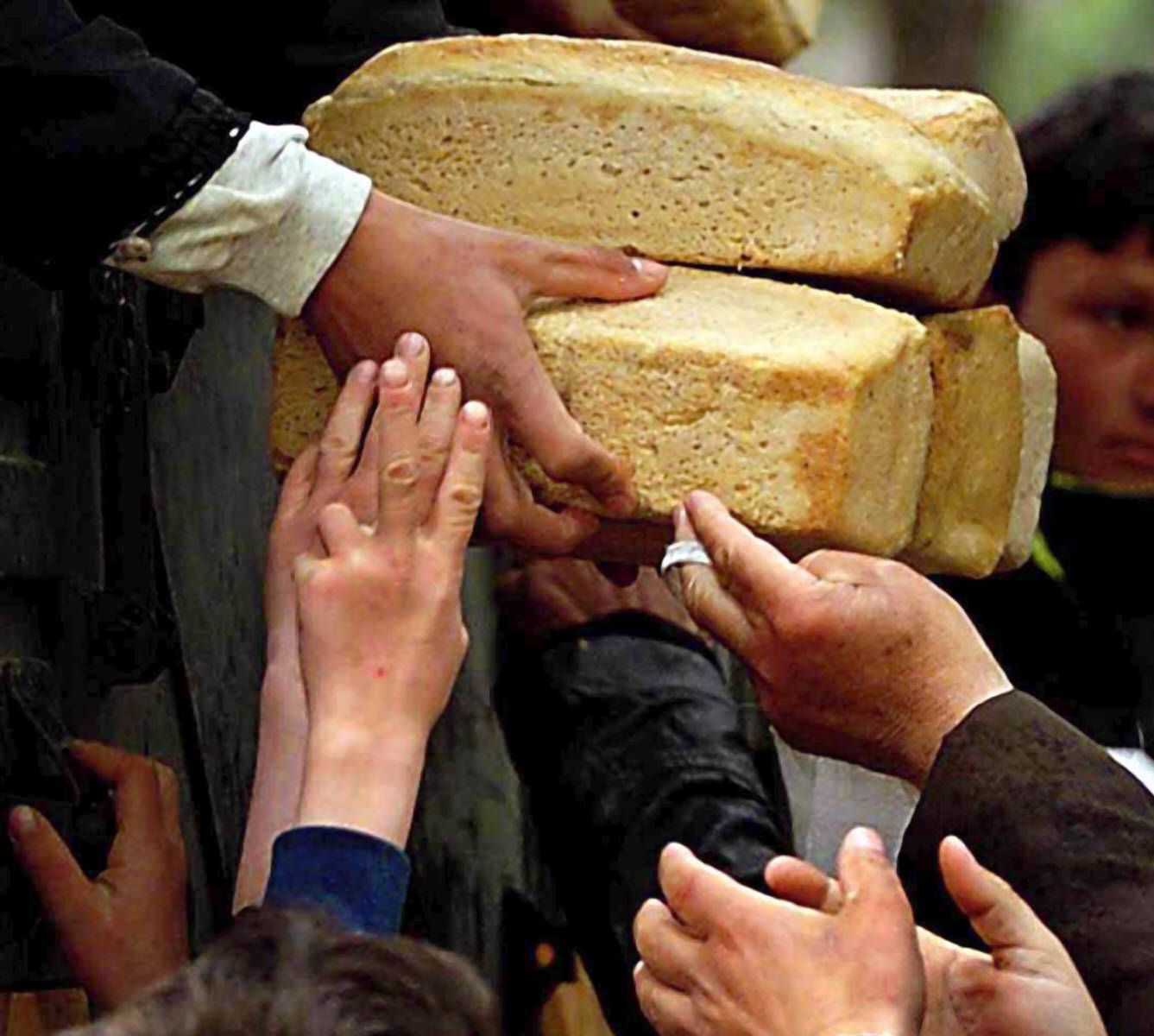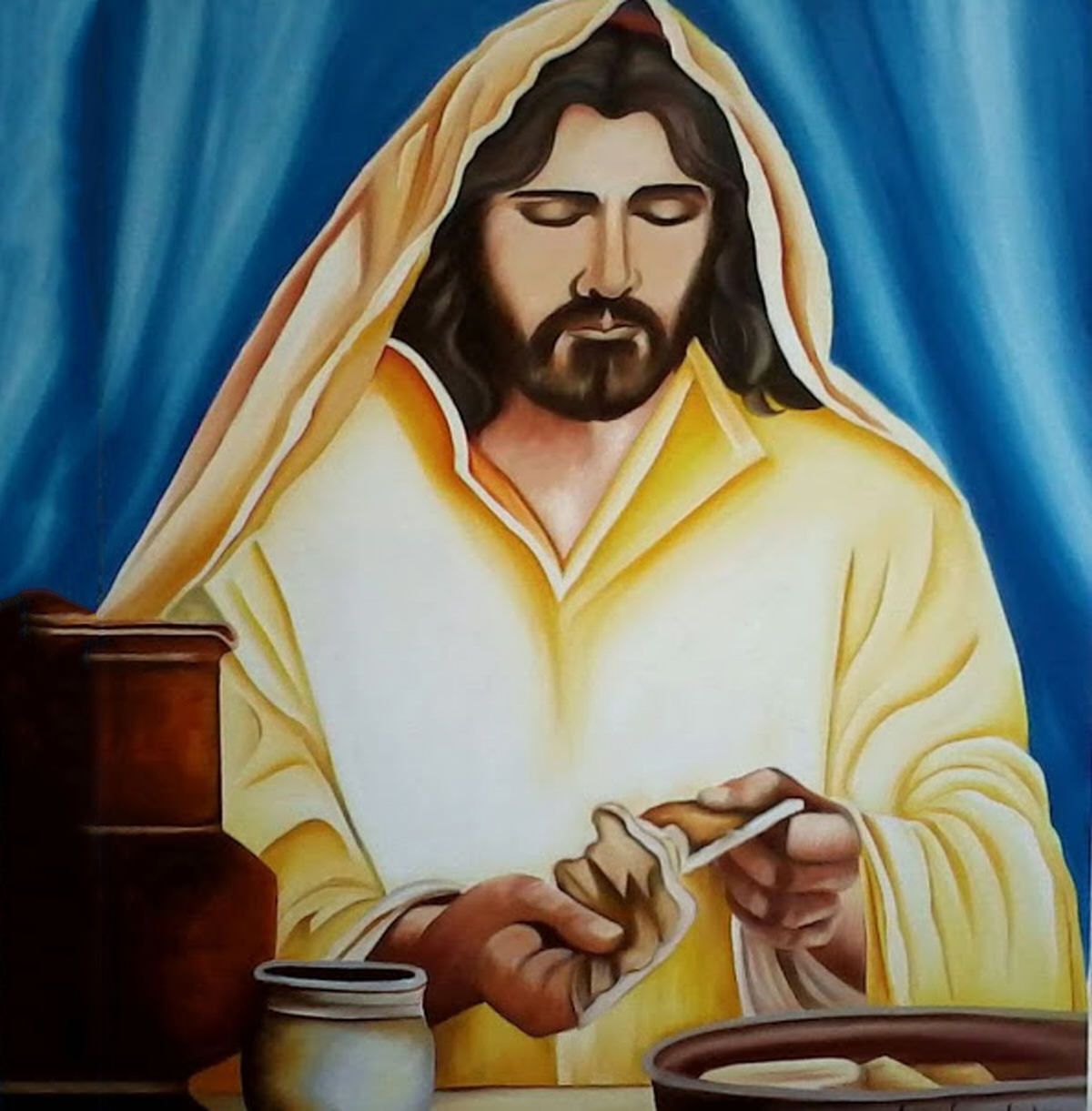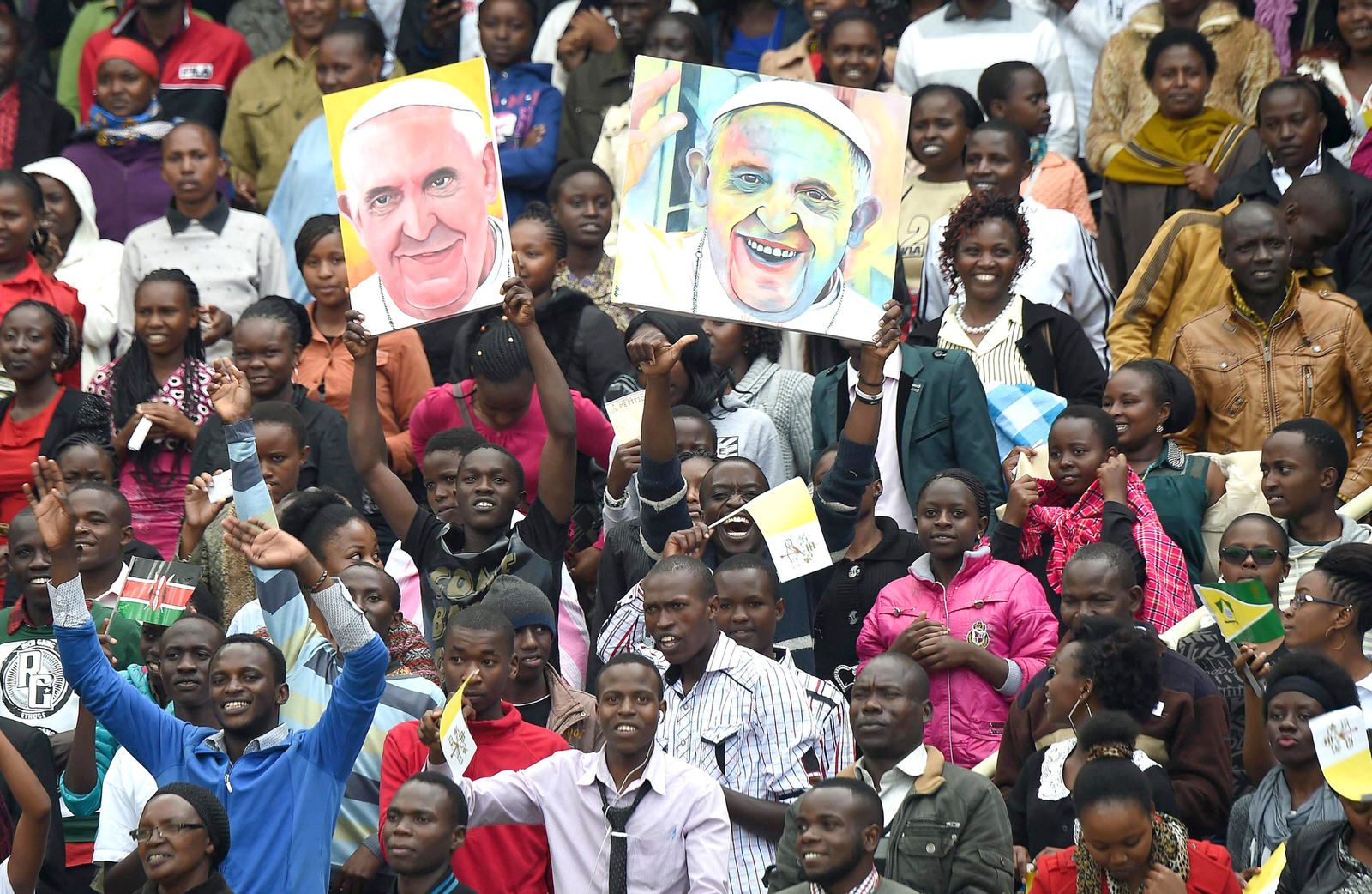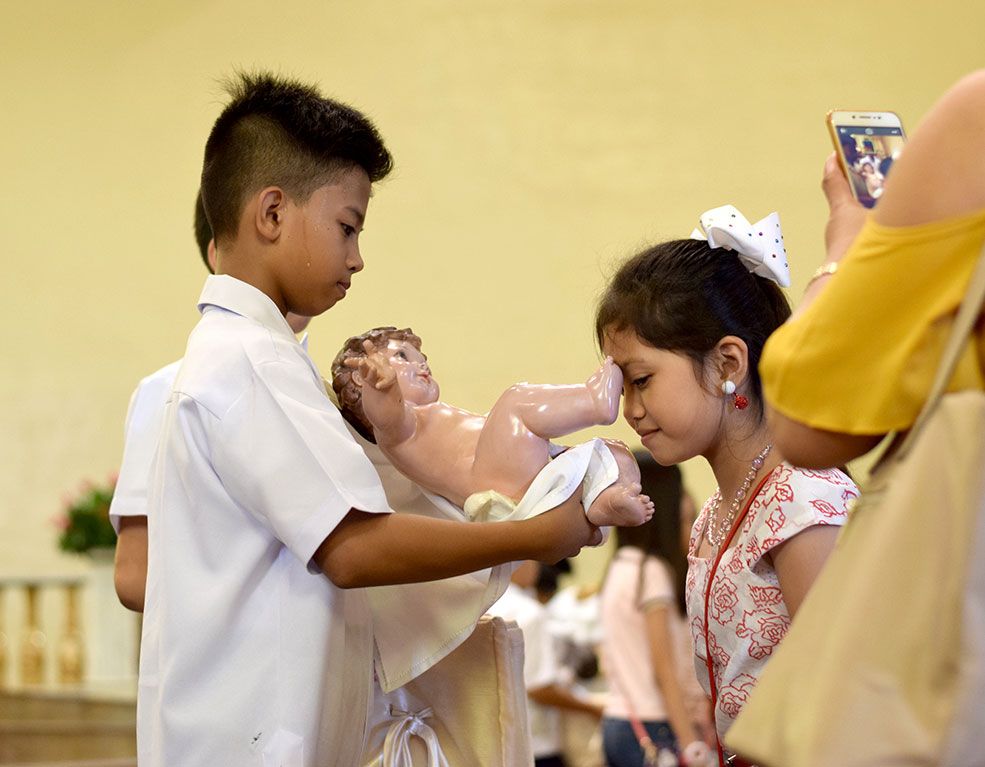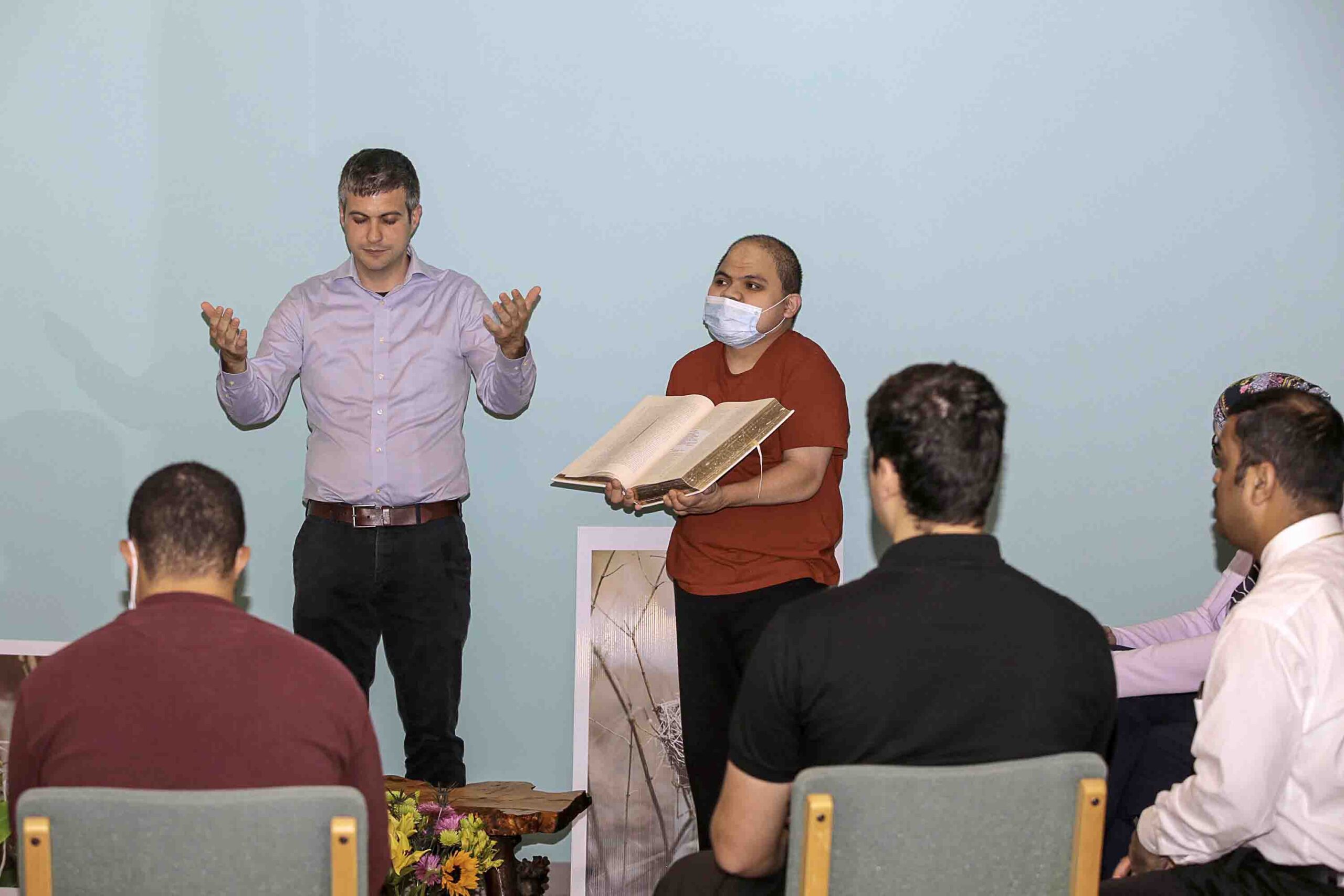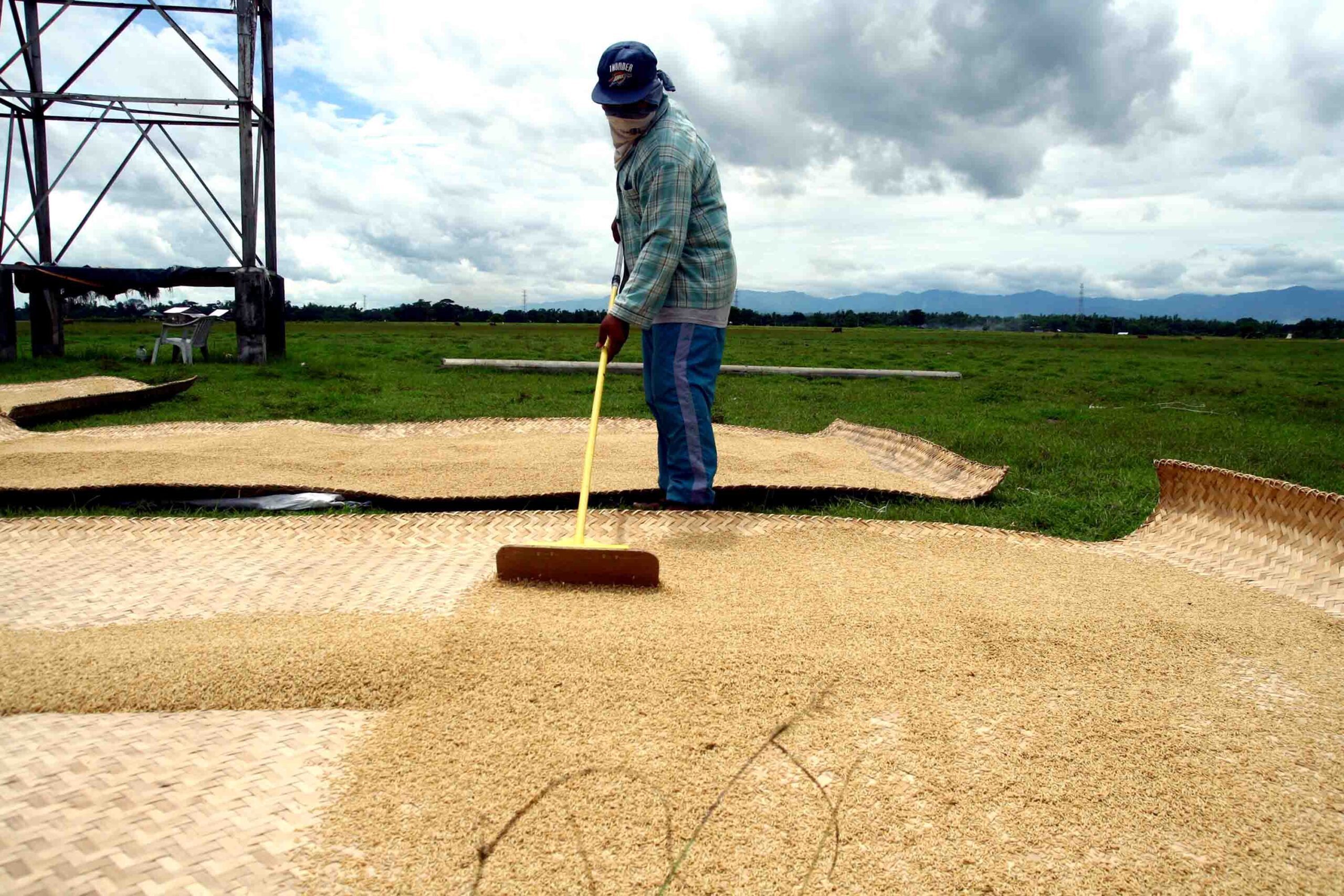At the end of the Gospel of Luke, we find an interesting story, which is universally known as the journey of the “Disciples of Emmaus.” The Evangelist tells us that the two left Jerusalem to go to Emmaus, a village whose location no one knows today. Luke points to something quite interesting: it is the day of the Resurrection, and those two knew it. Later in the story, they talk about how “some of our women went to the tomb and found it empty.” Yet, they are leaving Jerusalem and moving away from it. Who were they? Luke says they were disciples. These are not people who only followed Jesus once in a while. These are people who went out with the Master for quite some time. Besides, in Chapter 10, Luke says that Jesus sent out His disciples, two by two, to evangelize. These two seem very much to represent the evangelizing community! But why are they running away?
Their journey was not an easy one. On the way, they seemed to have a heated debate. They left everything behind to follow Jesus. They expected Him to be the Messiah, yet He died. Some women said the tomb was empty. “They must have had visions! Can you really trust women?” they must have thought. For whatever reason, the two must have been blinded or deluded, incapable of accepting the hard fact that Jesus failed His mission!
While no historian can say where Emmaus is, its symbolism is, nonetheless, significant. At the time the Gospel was written, people knew very well that the village was an important landmark. It was there where Judas Maccabeus won a battle against his enemies and, for the first time in centuries, Israel was free again. Emmaus represented what Israel could be: free, protected by Yahweh, able to stand tall against those who did not know the True God. The two disciples seemed to have been retreating, seeking refuge after their defeat!
In the Gospels, we are told that the life of Jesus was a long walk towards Jerusalem to fulfill His mission. These two walked away from the Holy City. Of course, they were unhappy. They felt that Jesus’ failure was, somehow, also their failure. They were so absorbed by their discussion that they did not even realize a Stranger had walked up to them and was now measuring His steps with theirs.
One of these disciples is Cleophas, a short form of Kleopatros, which means “of an illustrious father.” The emphasis here seems to be on the ideal of glory and success, an ideal which did not become a reality! Cleophas listened to the New Traveller and could not think better than to give a harsh answer: “Are you the only one who does not know what happened?” The Fellow Traveller did not mind the arrogant tone; indeed, He encouraged Cleophas to explain himself. Cleophas answered explaining the events that led to Jesus’ death and the empty tomb.
If we read the Acts of the Apostles, we would realize how Cleophas’ words are similar to the proclamation of Jesus done by the first community (cfr. Acts 2:22-26; 3:12-18; 4:8-12; 5:30-32; 10:37-43). The very same words used to invite people to believe in Jesus as the Christ are now used to deny Him! The Stranger then took over the dialogue. He explained all the passages from the Scripture regarding the Messiah. The two disciples listened intently, still unable to recognize their New Companion.
Their eyes were closed by their own narrow mentality. They followed Jesus in the hope that He will be the Messiah. The trouble was that they expected the Messiah of tradition: a Liberator who would lead Israel against the colonialists; a Warrior who would establish the new Kingdom of Israel. The Cross brought their dream to an end. The cross was the highest level of social exclusion. The crucified was abandoned by his family and friends. No one wanted to have anything to do with him. How could Jesus be the Messiah and die on a cross?
Cleophas and his friend were clearly attached to the past. They still thought not along the line of Jesus, but like the very institutions that had Jesus killed. They knew everything there is to know about Jesus to believe in Him. Yet they could not. Theirs was an intellectual knowledge that is not enough to give them faith. However, the two recognized in their Companion a Person who could give light to their quest. They invite Him to stay for dinner in an inn. This Stranger repeats Jesus’ actions during the Last Supper. At the breaking of the bread, their eyes opened. They recognized the Stranger as Jesus. This was enough to encourage them. Before, they were running away from Jerusalem, now, they are rushing back to bring their testimony to the Apostles.
From hopelessness to joy
Cleophas and his companion had a profound experience. In the relatively short span of time, they went from hopelessness to the joy of experiencing the Risen Lord. The apex of this event was the Eucharist-like meeting with Jesus. We can see in this evangelical episode the elements of discovering and experiencing Jesus. The two disciples were running away because their expectations were not met. These two also had a wrong interpretation of Jesus. They placed on Jesus their dreams, without actually listening to His teaching.
The two disciples also did not understand the link between the history of Israel, the many interventions of prophets and leaders, and the coming of Jesus. It took the Fellow Traveller to explain the Scriptures and show the thread connecting all these facts, a thread that ended with the arrival of the Messiah.
However, all these were still not sufficient for them to recognize the Christ. They only recognized Him at the breaking of the bread. This simple action, which reminded them of the Last Supper, was enough to overcome all the fears and misunderstanding, most probably because the simple action of breaking a loaf of bread is symbolic and charged with meaning.
One act, many meanings
The breaking of the bread is a powerful reminder of the Cross. On the Cross, Jesus ‘broke’ His life for us. This means total self-giving. The Cross, however, has an important aspect that is often overlooked. In the New Testament, we find the Cross in 27 passages: none of these point to suffering. Instead, when we speak of the Cross, we tend to over-emphasize the aspect of suffering. At the time of Jesus, the cross was an instrument of torture and capital punishment reserved to slaves and the worst criminal offenders. A person sent to the cross was considered sent out of society. No one, even the family of the sentenced, wanted to have anything to do with such person. The cross was the symbol of total social exclusion. When Jesus gave His life on the Cross, He did it from a state of helplessness. He gave up His own life totally, to the point that he was not considered worthy of human relationship. Yet, this action gave life to the world.
An act of humility
The breaking of the bread, the Eucharist, also means this: to accept the state of the lowest and lowliest of people, those refused by society; the invisible poor and oppressed amongst us. This is an important aspect of the Eucharist. When we receive it, we also proclaim we are ready to imitate Jesus in giving ourselves up as a gift to others. We proclaim that every person is important enough for our sacrifice. We state that we accept the commandment to love our neighbors unreservedly.
The bread shared among those sitting around the table points to the Body of Christ. We believe that, in the Eucharist, we receive the real body of Jesus. But what body? Are we thinking of the beauty of the body of a person in his fullness of life, or are we considering the body of a person dead on a cross? In today’s world, we are led to believe that the only body worthy of attention is that of the young and beautiful. Models are sought after to advertise clothing, cars and beer. To many, the care of one’s body has become an oversized problem: gym, food, dressing … everything requires effort. While it is important to take care of one’s body, are we not forgetting something? This emphasis on beauty and performance, is it not leaving outside the body of the suffering, the body of the aged, the body of the disabled? Is the body carrying the weight of age, illness, or abuse, less important? In the Gospel, Jesus often touches the body (of the infirm) or speaks of the body. He does so to remind us of the importance of the body which is the home of the person, and the dwelling place of the Spirit. The Eucharist is the body of Christ. It is also a powerful reminder that the importance of the body is not in its beauty and youth. It is in being the dwelling of the person, in being the place where God incarnated, the home of the Spirit of God who dwells in us.
The Gospel of John differs from the other three in many aspects. Regarding the Last Supper, John gives us the narrative of the event, but he omits the institution of the Eucharist altogether. Throughout the Gospel, John infers that the bread, the sharing of it, is important. In the narration of the Last Supper, John substitutes the institution of the Eucharist with another important event: the washing of the feet. There, Jesus is described as getting up from His seat, taking of the cloak He was wearing, placing an apron around His waist, washing the feet of His disciples, putting on the cloak again and returning to His place at table. The washing of one’s feet was the work of a slave towards his master. It was also an action performed by a wife to help the husband, or of sons showing their service to their father. In any case, it was work that denoted service from a lower person towards a greater one.
Jesus washed the feet of His disciples to indicate what kind of relationship there must be among them, and between them and the community of followers. Notice that when Jesus was finished, He wore the cloak again but did not discard the apron. With this detail, John tells us that the Lord Jesus is a serving Lord. “If I, who am Lord, have done this to you, the same should be among you.”
These aspects – accepting social exclusion in all its forms, giving the right importance to the body, being ready to serve in the humblest manner – are all contained in that action: the breaking of the bread. The Disciples of Emmaus saw that simple action and realized the real importance of it. When we celebrate the Eucharist and see that action being done by the priest, we are called to reflect on its meaning in our lives. Certainly, the first answer we should have would be to set aside any fear and proclaim with our lives that Jesus indeed is risen, He is among us, ready to serve and lead us in service.

